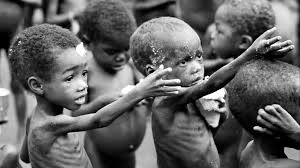The Federal Government has raised alarms over a severe malnutrition crisis affecting 4.4 million children in Nigeria's Northeast and Northwest regions. The alarming situation was highlighted by the Director of Nutrition in the Federal Ministry of Health and Social Welfare, Ladidi Bako-Aiyebusi, during a five-day meeting of nutrition experts and stakeholders held in Keffi Local Government Area of Nasarawa State.
The meeting, organized in collaboration with Civil Society-Scaling Up Nutrition in Nigeria (CS-SUNN) and other key partners, was convened to address the critical nutrition challenges facing the country, particularly in the most vulnerable regions.
According to Bako-Aiyebusi, the malnutrition crisis is fueled by a combination of factors, including limited access to food, poor dietary habits, and improper feeding practices. These issues are further exacerbated by broader economic and political challenges, low health-seeking behaviors, and inadequate educational levels among the affected populations.
"The situation is dire, and it requires urgent collaboration to devise a strategic document that outlines effective advocacy for nutrition in Nigeria," Bako-Aiyebusi emphasized. She pointed to the 2021 National Food Consumption and Micronutrient Survey report, which revealed the extent of the crisis in the Northeast and Northwest regions.
"The report shows that nearly 4.4 million children in these regions are malnourished. The causes of this malnutrition are complex, including inadequate access to food, poor food consumption, improper feeding and caring practices, low economic status, and insufficient education among the populace," she explained.
The five-day meeting provided a crucial platform for stakeholders to develop a comprehensive and integrated strategic advocacy process aimed at improving nutrition for children in these regions. The government and its partners are working towards a partnership-centered approach to address the root causes of malnutrition and to implement sustainable solutions that will ensure better health outcomes for Nigeria's children.
This collaborative effort is seen as essential in the fight against malnutrition, which poses a significant threat to the health and development of millions of children in the country.




